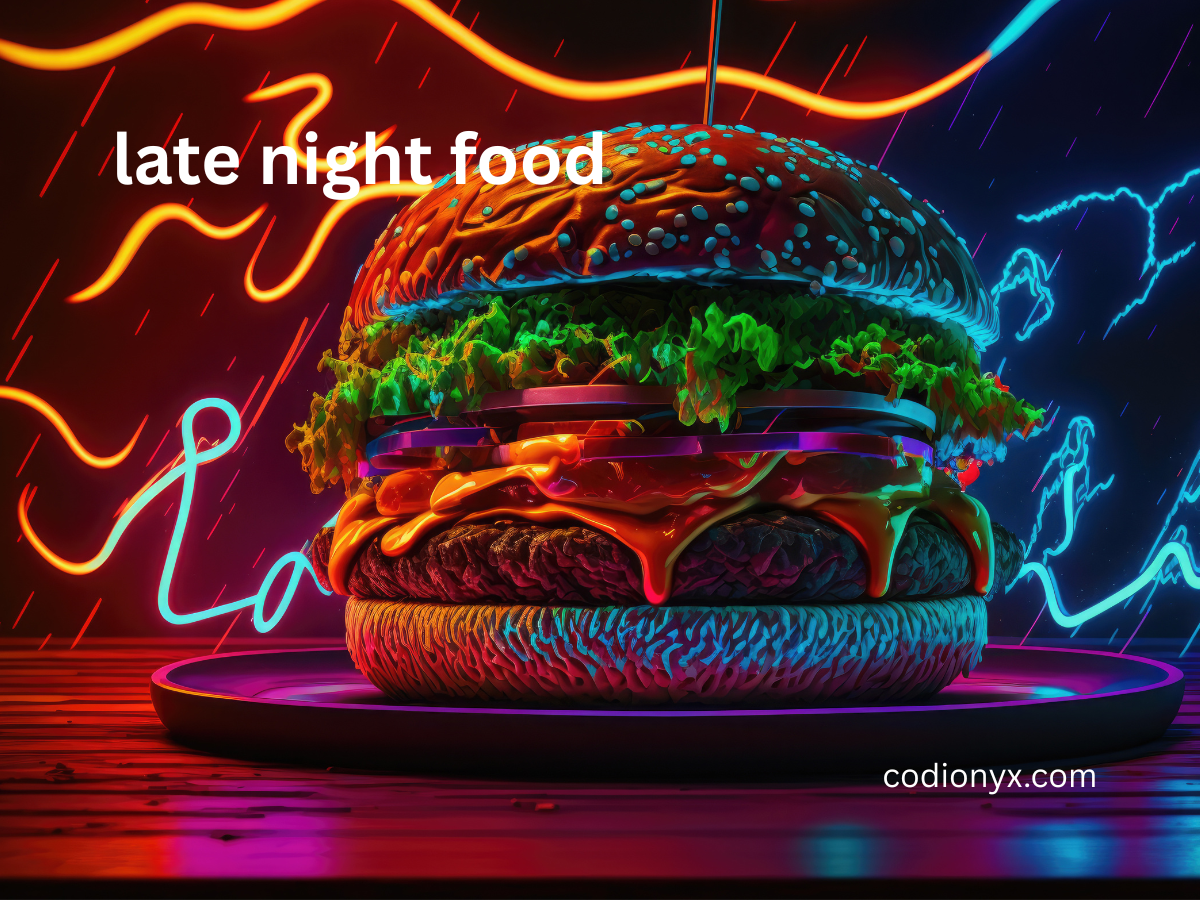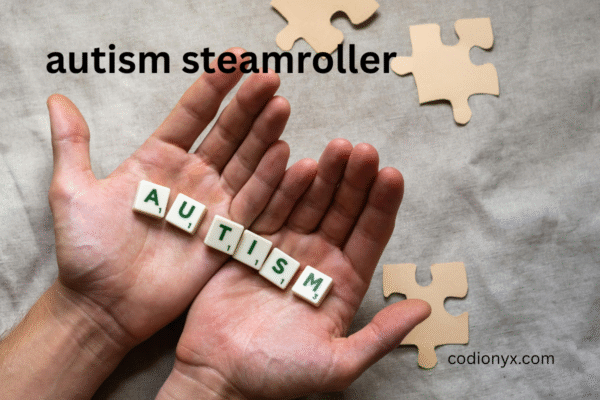Introduction
Late Night Food has a certain allure. The appeal of food after hours is ageless and universal, whether it’s a warm bowl of ramen while pulling an all-nighter, a greasy slice of pizza after a night out, or simply a midnight longing for something sweet. In the fast-paced, round-the-clock world of today, dining late is not only more popular but also more varied than before.
The world of late night food will be examined in this article, along with the reasons behind our cravings, the best foods to eat, cultural variations, the health effects, and even some advice on how to choose more wisely. This guide is for you whether you work nights, are a college student, or are just a foodie at heart.
Reasons for Our Late Night Food Cravings
Hunger isn’t the only reason behind late-night cravings. The desire to eat after dark has both biological and psychological causes:
1. Alterations in Sleep Schedules
Late-night sleepers frequently suffer from hormonal abnormalities that impact the hunger hormone ghrelin and the satiety hormone leptin, which makes them feel more hungry even after eating earlier.
2. Emotional Comfort People relax, think, and frequently manage stress at night. Pizza, cookies, and ice cream are examples of comfort foods that can serve as emotional support.
3. Cultural and Social Practices
Late night food gatherings are common in many regions of the world. Food is central to nocturnal culture, from Mexican street tacos to American late-night dining establishments.
4. Accessibility and Convenience
It’s now easier than ever to sate a craving at two in the morning thanks to the popularity of meal delivery apps. This convenience-driven culture is fueled by services like DoorDash, Uber Eats, and local delivery platforms.
Popular Foods to Eat Late at Night
1. Pizza
A timeless and well-liked option. It is always accessible, easily shared, and configurable. Even as a morning snack, cold leftover pizza has a cult following.
2. Instant noodles and ramen
It’s inexpensive, easy to make, and incredibly fulfilling. In the middle of the night, a bowl of warm noodles might seem like a hug.
3. Street Food & Tacos
In many nations, especially in cities with a thriving nightlife, tacos, shawarmas, and kebabs are popular food options.
4. Fast food
When cravings hit hard, burgers, fries, and fried chicken are the ultimate decadent choices.
5. Sweets & Desserts
Sweet toothed night owls prefer ice cream, doughnuts, cookies, brownies, and even milkshakes.
6. Dinnertime Breakfast
Breakfast menus are frequently served at late-night restaurants; after a long day, the combination of eggs, pancakes, and hash browns feels like a treat.
7. Subs and Sandwiches
It’s quick, satisfying, and adaptable, making it ideal for late-night gaming or study sessions.
8. Healthful Substitutes
Smoothies, fruit bowls, Greek yogurt, and hummus with vegetables are all healthy options that can yet be filling.
International Late Night food
Every culture has a different perspective on eating late at night. Here are some well-liked choices worldwide:
US: quick food chains, food trucks, restaurants, and delivery services available around-the-clock.
India/Pakistan: tea, bun kebabs, kebabs, and parathas.
Mexico: churros, elotes, and tacos al pastor.
South Korea: ramyeon, tteokbokki (spicy rice cakes), and Korean fried chicken.
Japan: Izakayas there serve udon, yakitori, and sushi into the wee hours of the morning.
Europe: cafes with light meals, kebab vendors, and late-night bakeries.
Effects of Late Night Eating on Health
Even while eating late at night is fun, it’s vital to understand how it affects your health.
1. Gaining weight
The natural metabolism of your body can be disturbed by eating late. Particularly if you’re sedentary later, calories taken at night are more likely to be stored as fat.
2. Poor Digestive Health
Eating a large meal soon before bed can cause indigestion, bloating, and even acid reflux, which can interfere with sleep.
3. Disturbance in Sleep
Foods high in sugar, caffeine, or spice can disrupt sleep patterns, making it more difficult to get to sleep or remain asleep.
4. A Higher Chance of Illness
Frequent late night food eating is associated with obesity, cardiovascular problems, and type 2 diabetes, especially when the diet is deficient in nutrients.
Advice for Eating Healthier Late at Night
The following advice can help you eat smartly if you have to dine late:
1. Eat lighter: Steer clear of heavy or oily foods and choose smaller servings.
2. Put an emphasis on fiber and protein to help you feel full without experiencing a sugar crash.
3. Steer clear of sugar and coffee as they can cause energy spikes and interfere with sleep.
4. Drink plenty of water since often we confuse thirst with appetite.
5. Make a plan: Stock up on nutritious foods like smoothies, yogurt, and almonds.
Students and Shift Workers Eating Late at Night
Late night food are more than just cravings if you work night shifts or study late. They are essential. Here’s how to better handle them:
Maintain regular mealtimes: Make an effort to resemble a daytime eating routine.
Prepare your meals: Prepare meals at home to avoid fast food and vending machines.
Consume lighter meals more often: Eat smaller snacks every three to four hours in instead of larger dinners.
Technology’s Place in Late Night Food Culture
Without technology, late-night dining would not have become as popular as it is now.
Late night food is now available with a tap of a screen thanks to delivery apps like Uber Eats, FoodPanda, and Grubhub.
Social media and food influencers frequently post “midnight snack” recipes, starting fads like “3 AM noodles” or “midnight mug cake.” • Cloud kitchens now only serve late-night delivery.
Additionally, data tracking made possible by technology lets food businesses more effectively target late-night peak hours.
Conclusion
Eating at night is more than simply a way to sate your hunger; it’s a custom, a culture, and a very intimate experience. Late-night meals provide solace and camaraderie, whether you’re wrapping up a shift, grieving a loss, or just spending time alone with a hot meal.
But like with anything decadent, moderation is essential. You may have the best of both worlds—delicious cuisine and a healthy lifestyle—by being conscious of your choices. So feel free to give in to your urge, but do it wisely.
FAQs
1. Is it bad to eat late at night?
Not always. What and how much you eat will determine this. Compared to fatty or sugary snacks, lighter, nutrient-dense meals are less likely to create health problems.
2. If I’m watching my weight, what’s the ideal late night food option?
Choose foods that are high in fiber or protein, such as fruit, almonds, cottage cheese, boiled eggs, Greek yogurt, or cottage cheese.
3. What causes my hunger to increase at night?
Your late-night food cravings might be influenced by your circadian rhythm, sleep habits, and stress levels.
4. Is eating right before bed acceptable?
Eating should ideally be done 1-2 hours before bed to allow your body to digest and prevent sleep disruptions.
5. Are desires in the middle of the night physical or emotional?
Both. They may be the result of stress, boredom, or true hunger, particularly if you skipped meals earlier in the day.
6. What foods should I stay away from late at night?
Steer clear of coffee, spicy food, heavy fried meals, and high-sugar desserts as these can induce indigestion or disrupt sleep.
7. Which things are most frequently delivered late at night?
Pizza, burgers, fried chicken, ramen, and desserts like cookies and ice cream are among the most popular foods, according to food apps.










